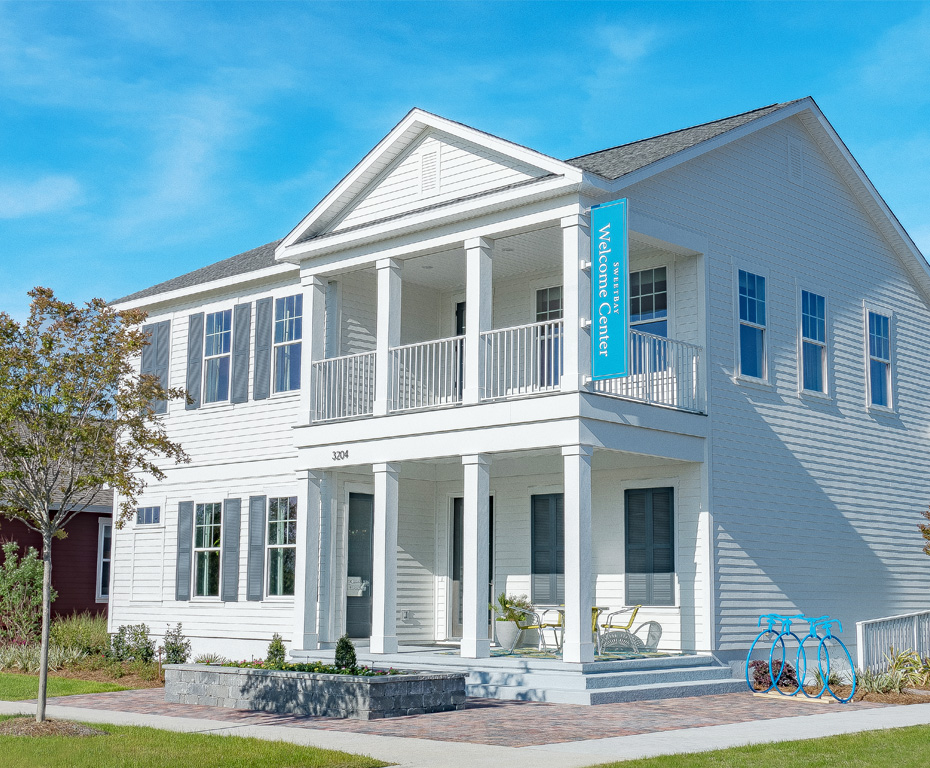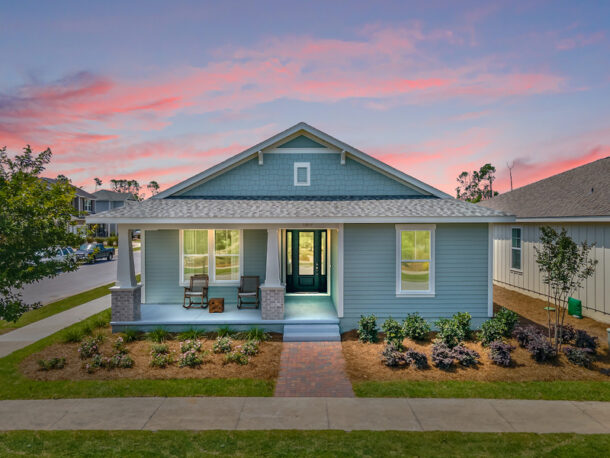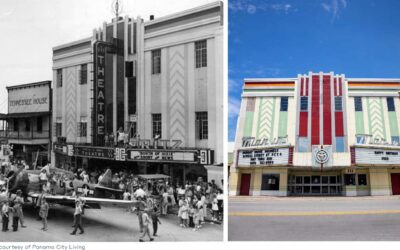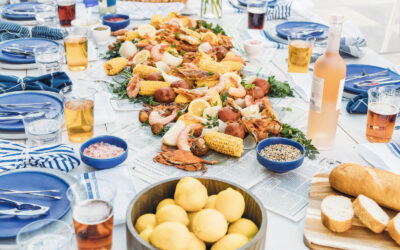When a quiet community faces a natural disaster, heroes like Annie Holcombe are made and the humanity of many prevail.
Get to know the people who live in SweetBay, and you’ll quickly notice a contagious culture of generosity. The people here are making waves. Guided by conviction and a civic-minded spirit, this is a neighborhood of inspiring difference-makers with stories to tell.
SweetBay’s own Annie Holcombe has a story. It’s a jarring one. The scenes are, at first, smattered together. It’s nonsensical. Hearing the story was like looking through a kaleidoscope, one vivid image smashing into the next vivid image and all of the pieces were snapshots, independent but connected.
First, driving rain and a night sky, visible from the living room of a brick rambler with no roof. Next, a man and a woman literally covered in insulation. Somewhere else, in another man’s yard, there’s stuff: personal belongings, scattered about. Everywhere, front yards are littered with bedding and children’s toys.
Then there’s this scene: a woman kneeling over a plastic bin in the rambler with no roof. The woman, who many in Panama City have come to know, is Annie Holcombe. In the wake of Hurricane Michael, she places family photos inside the plastic bin and presses down on the lid until it snaps.
Holcombe projects self-reliance. She embodies an old-school American ingenuity and a get-it-done approach that simply finds a way. And so it was in this spirit of blue-collar hustle that Holcombe, the daughter of a police officer, started a bin drive to help those whose homes were damaged or destroyed.

Hurricane Michael was the first Category 5 hurricane to strike the contiguous United States since Andrew in 1992. This 2018 storm was also the third-most intense Atlantic hurricane to make U.S. landfall, behind only the 1935 Labor Day hurricane and Hurricane Camille of 1969.
The Rambler’s Fate
Remember the man and woman covered in insulation? Those two are Annie’s parents, both in their 70s. Because there was limited cell service in the wake of the hurricane, Holcombe didn’t know if her parents had survived until they showed up a day after the storm made landfall.
In the past, when a hurricane was headed for Panama City, Florida, Holcombe and her family evacuated nearby to her parent’s home, the brick rambler. It’s an older home, very sturdy. But this time, Annie’s family didn’t. They had just moved into their home in SweetBay, a new home, constructed following Florida’s most current hurricane building codes. So they stayed put. And the decision paid off.
“The flip side of all of it — it was a great advertiser for our community because we were strong and the houses in SweetBay just withstood,” says Holcombe. “There’s no reason these houses, considering what we went through, should be standing.
By Friday after the storm, Holcombe’s parents left for Destin. They needed a stable place to stay, especially since Annie’s mom was on oxygen. So Annie went to her parent’s house to collect what remaining items were salvageable.
“So my mom was like, I have a box in the front room, can you start putting those things together,” Holcombe says. “And she had this plastic bin and that’s all she had. And I realized there was no way I was gonna get all this stuff in my car. So we packed up everything we could in wet boxes and trash bags and salvaged what we could.”
Hundreds and Hundreds of Bins
Still, having more plastic bins would have made a difference. And having more plastic bins could make a difference still. It was about salvaging what was left, cherished items now unprotected, often scattered about in damaged homes or worse.
“I worked for a travel company and had friends from all over the country and in Canada, and they kept asking, ‘what can we do,’” says Holcombe.
Holcombe’s answer? Send bins.
“There was no way to get bins here in town. From that point on, people just started shipping bins in and, then it just became this Facebook, social media sort of web of people just passing it on,” says Holcombe.
From there, bins started arriving at Holcombe’s home: lots of bins, hundreds and hundreds of bins. Next, she set up an Amazon list and had people donate what they could from the list. Soon Holcombe’s SweetBay neighbors started unboxing bins, and Holcombe loaded the bins and drove them to areas of town where the most devastation occurred, and the need was the greatest.
The magnitude of hurt and loss came into full view on these bin runs. Some families had everything they owned — kids’ toys, bedding, piles of clothing — scattered out in the streets.
“I’m a freak for hugs. And people kept asking, ‘what can I pay you?’ So I would say to people, just give me a hug, and it started becoming this thing where it was like, you get a bin and you get a hug,” says Holcombe.
By Thanksgiving, Holcombe shifted from bin donations to meal donations.
“We did meals for Thanksgiving and that was just quick-grabbing donations through Facebook and those kinds of things,” she says. “And people were so, the humility that you saw … they were hungry. I mean, they were living in a parking lot and it had been raining and they had nothing and there were people living in their cars.”
In the end, Annie Holcombe’s bin drive teaches something larger: Old-school American ingenuity, a trait that is often celebrated, can align with something modern (and often maligned) like social media. And, together, unlikely partners can do great things.
In this case, the mix was magic.






